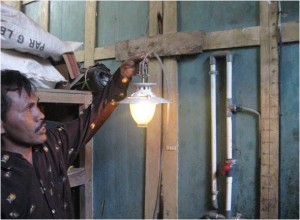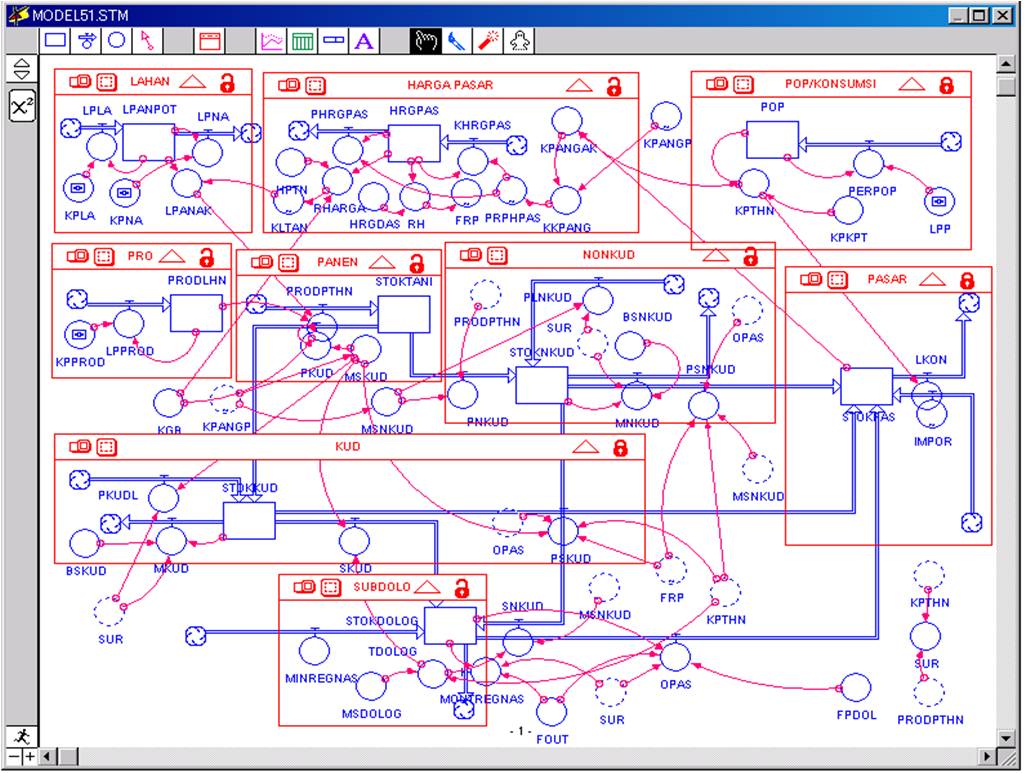Mar 30 2010
Development of Biomass as an Alternatives Energy in Indonesia: Prospect and Challenges
Recently, Indonesia is facing the seriously problems regarding the national agricultural development, likely: low productivity, decreased number of farming labor caused by shifting an agricultural labor to non-agricultural labor, unpredicted climate, limited energy resources in agriculture, etc. We are having some difficulties to introduce high level of agricultural technology due to characteristics of the Indonesian agricultural.
The most important issue in agriculture field, especially in the developing country is energy use and its efficiency. The “energy crisis” triggered considerable debate on the energy needs of agriculture and the efficiency with which it is used. Many now feel that the energy use for agriculture is much too high in the developed countries (European Countries) than in the developing countries, and that farming systems are therefore not sustainable. Some facts showed that the energy ratios of traditional agriculture vary from about 5 to 70 as compared with 0.1 to 5 for agriculture in industrial countries. Traditional agriculture results in food energy outputs which are extremely high in comparison with energy used in their production. Thus when considering the sustainability of farming system from the point of view of energy use, the developing countries farming system are more sustainable than the industrial countries.
Since 30 years ago, when petroleum prices began to increase dramatically, people have become more aware that liquid fossil fuel is a finite resource, and that steps to conserve the supply and improve the efficiency with which it is used are very much in order. This awareness has also led to increased interest in developing alternative sources of energy and increasing the scope of use of known sources. The dominant influence of the urban sector over the rural sector in most countries has caused the use of energy in agriculture to be singled out for special challenge. In many cases this challenge has focused on agricultural mechanization, particularly farm machinery. The relatively small share of overall commercial energy consumed by agriculture, the unquestionable need for progressively increasing agricultural output in nearly all countries of the world, and the understanding that high yield agriculture depends to a large extent on energy intensive inputs such as machinery, fertilizers and pesticides, clearly shows that agriculture deserves to be given the highest priority when allocating available commercial energy supplies in most countries.
Based on those problems, the study was focused on renewable energy. Renewable energy sources can be replenished in short period of time. The five renewable sources used most often include hydropower (water), solar, wind, geothermal and biomass. Furthermore, the matter will concentrate to one of renewable energy sources, i.e. biomass. Biomass is organic material, which has stored sunlight in the form of chemical energy. Biomass fuels include wood, wood waste, straw, manure, sugar cane, and many other byproducts from a variety of agricultural processes. In fact, biomass continues to be a major source of energy in much of the developing countries, like as Indonesia.
Bio-energy uses biomass, plant matter or animal waste to produce electrically, fuels and heat. Examples include ethanol motor fuel, landfill gas and wood burned in fireplaces and stoves. As we know, ethanol is the principle liquid fuel made from renewable resources. Use of biomass as a fuel offers some environmental advantages over fossil fuels like coal and oil, but can also have significant negative impacts on the environment. Other renewable fuels include biodiesel and hydrogen. Renewable fuel production provides jobs in rural areas while reducing dependency on imported petroleum.
Using liquid fuels from renewable biomass can actually decrease the accumulation of greenhouse gases while providing clean, efficient energy for transportation. In the future woody and herbaceous bio-energy crops could provide clean-burning fuels for a renewable fuel economy. Entrepreneurs and investors with vision and the access to appropriate technologies can tap into these abundant renewable, environmental resources. One of the principal benefits of biomass fuels is that it provides a storable transportation fuel while reducing the effects of greenhouse warming.
Indonesia as the developing country has high potential to produce bio-energy by using agricultural product waste, but an appropriate technology and supporting facilities to process it were very limited. In the future, in order to overcome the fossil energy crisis, we have to strongly develop the alternative bio-energy.


